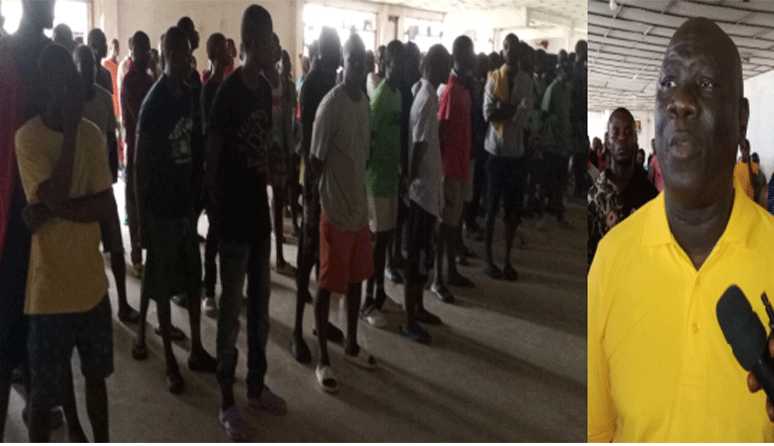The National Rehabilitation for Drugs and War Affected Persons is expected to put out of the facility hundreds of abandoned youths after months of detoxification and rehabilitation. Executive Director, Augustine Nagbe said his institution cannot continuously keep almost 650 disadvantaged youths, some of whom have completed the rehabilitation process.
Speaking while on a guided tour of the facility with a team of media executives over the weekend, Nagbe said the Liberia National Police has been informed of preparation to re-unite hundreds of rehabilitated youths with their families and put out hundred others abandoned by their families.
Colonel Nagbe said the abandonment of these youngsters resulted in the forfeiture to undergo training to acquire professional skills to sustain themselves after reintegrating into the society. He said the entity is not a torture chamber or a prison to hold disadvantaged youths endlessly.
Some of the professional skills training at the National Rehabilitation for Drugs and War Affected Persons are soap science, driving, carpentry, cosmetology, industrious security, among others. He revealed that over eight 25KG bags of rice and 30,000 Liberian Dollars are needed daily to cater for persons at the facility and this is depleting his resources.
Nagbe explained that he has also hired a number of people including trained nurses, soap scientists, mechanics, drivers, beauticians, carpenters, security, cooks and guidance counselors to help manage the entity.
“We are not receiving any support from the Liberian Government despite President Joseph Boakai declaring the issue of drugs as a national emergency in the country,” he said. He commended some parents who on some occasions bring bags of rice and some cash for the up keep of their children undergoing rehabilitation.
During the tour, some of the disadvantaged girls appealed for support in order for them to be given some basic vocational skills. Konah Zorduah, 35 years of age with three children, told reporters that she got hooked on drugs as a result of her boyfriend’s influence, and was brought to the center by her father, while her mother has refused to send for her because of the addiction.
As for Kadibah Barry, in her early 20s, she left her parents’ house because they wanted her to get marry to an older man when was just 12 years old. When she refused, she was disowned and left with no option but to get into the streets where she was introduced to drugs by friends.



